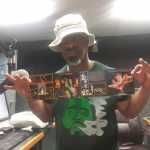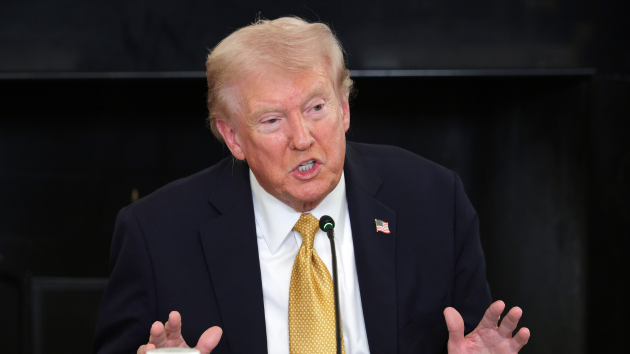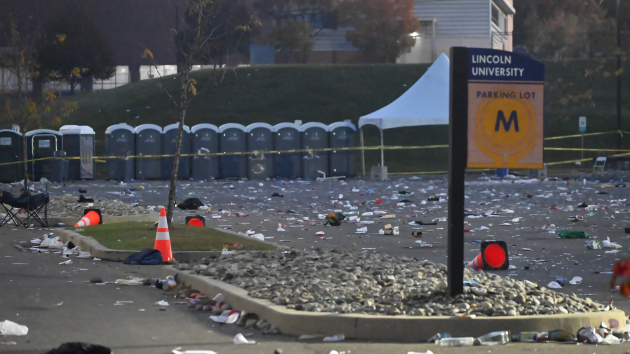Black-owned banks, born out of post-slavery economic barriers, seek to address racial wealth gap
Written by ABC Audio ALL RIGHTS RESERVED on July 4, 2023

(NORTH CAROLINA) — When Dorian Bolden began expanding his coffee shop, Beyu Caffe, in Durham, North Carolina, he says the most difficult part was securing funding as a Black business owner.
“I recognize how we were not able to get funding the way I saw, you know, my white counterparts getting funding,” Bolden told ABC News.
Bolden is far from the only Black entrepreneur to face such a barrier. Black-owned businesses were about half as likely as white-owned businesses to receive all or most of the financing they requested, according to a 2022 Federal Reserve report.
The struggle to find capital isn’t new. After the end of slavery, Black Americans were largely shut out of American banks. Between 1865 and 1934, minority depositories, also known as Black-owned banks and credit unions, began to surface across the country as a result.
The Greenwood section of Tulsa, Oklahoma, would become home to what was known as Black Wall Street, but in 1921 it was burned to the ground by white supremacists in a violent race massacre.
Historic downtown Durham, where Bolden set up shop in 2009, acquired a “national reputation for entrepreneurship” of Black-owned business in the early 1900s, reads a sign in the area. Founded in 1907, Mechanics and Farms Bank, or M&F Bank, was among those businesses.
M&F Bank is now the second-oldest minority depository in the country. Bolden said he worked with the bank to secure funding for Beyu’s expansion, adding two new locations at Raleigh Durham Airport.
“Recognizing the importance of having support from a Black institution, it does matter,” Bolden said.
Obtaining a mortgage loan is another obstacle faced by Black Americans seeking to own their own home and build wealth for future generations.
For Debbie Jones, a resident of Pearl, Mississippi, it was a dream she shared with her late mom. But she began to question if her dream would ever become a reality after she says she was denied a home loan from a well-known mortgage company.
“But that particular loan company stated that they denied me because I didn’t have the income, and I knew I had the income,” Jones said.
Jones ended up going to Hope Credit Union, a Black-owned depository in Mississippi. She said the institution used the same criteria as the first mortgage company she tried, yet she was instantly approved.
“If your annual income in your household of $150,000 and you’re Black, you’re more likely to be turned away for a mortgage loan than if you’re white with a $30 to $40,000 income. So there are disparities, systemic discrimination in the financial system,” Bill Bynum, Hope Credit Union CEO and co-founder, told ABC News.
While minority depositories are working to close the racial gap, the recent bank failures of Silicon Valley Bank, First Republic Bank and Signature Bank have raised concerns over the health of the nation’s banking system. New research suggests that almost 190 U.S. banks, including community and minority depositories, could face a similar fate if just half of their depositors took their money out, according to a National Bureau of Economic Research working paper.
Bynum said that while Hope Credit Union hasn’t had a run on deposits, they are having “conversations with some of [their] depositors who are obviously nervous.” M&F Bank CEO James Sills said that most community banks are largely safe and don’t have risky business models.
But the same “perception of risk” that impedes Black entrepreneurs and prospective home buyers also applies to Black-owned institutions themselves, Bynum said.
It’s a concern echoed by Nicole Elam, president of the National Bankers Association, a trade group advocating for minority depositories.
“We are all too familiar with systemic racism and how it’s impacted not just policies, but how it’s impacted people’s perceptions and people’s psychology,” Elam told ABC News.
Beyond the perception of risk, the challenges for minority depositions to build and sustain capital continue to mount, but there has been some relief.
Congress is investing $12 billion into minority depositories through the Emergency Capital Investment Program. This month, the Economic Opportunity Coalition pulled together $1 billion in private sector funding. In addition to that funding, Elam says she would encourage federal, state and local governments to make deposits in Black and minority banks.
For Bolden, securing funding has allowed him to help build community.
“The fact that we have team members who started as a host and now they’re, you know, senior leaders and second houses they purchase, having a salary. Being able to see people grow and develop and have a financial future, that’s community,” Bolden said.
And out of strong communities, future generations get a shot at building wealth.
“[Buying a home] was a dream come true. It was wonderful. It’s something, a legacy. Something that I can leave my children,” Jones said, adding that her mom was able to enjoy the home for five months before she passed.
“I know she’s my angel now, and she’s watching over me,” Jones said.
Copyright © 2023, ABC Audio. All rights reserved.

 KVSP
KVSP 




